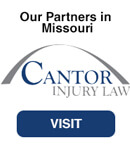Workplace Violence in Philadelphia
Workplace violence affects an estimated two million workers every year. Workplace violence in Philadelphia can take many forms including verbal abuse, physical attacks, and even homicide. In some industries like healthcare, it is the third leading cause of death. While some workers are at a higher risk than others for workplace accidents like this, it can happen anywhere.

Liability for Workplace Violence Incidents
Although acts of workplace violence in Philadelphia are incidents that can end in tragedy, they are still workplace incidents where employees suffer an injury at the workplace. Because it is the employer’s responsibility to provide a safe and hazard-free environment for all employees, employers may be held liable for any injuries that employees sustain from these violent incidents.
The General Duty Clause of the Occupational Health and Safety Act grants employers the right to provide a safe and hazard-free working environment without hazards that can cause serious harm or death to employees. Under this clause, employees and family members of employees are able to file legal claims against employers.
Examples of Workplace Violence Liability
There are several reasons why employees can hold employers liable for workplace violence on the job in South Philly. These reasons include:
- Negligent hiring
- Negligent retention
- Negligent supervision
- Failing to provide adequate security
- Breach of contract
Negligent Hiring
Negligent hiring is a doctrine that holds employers liable for any harm that their employees cause to third parties. Employers can be held liable under this doctrine if it has been proven that the employer knew of the employee’s ability to cause harm or if an adequate investigation would have identified the risk. Failing to properly screen an employee during the hiring process is seen as an act of negligence, and can lead to several workplace violence incidents. However, proving negligent hiring in court depends on more than just a failure to provide a background check.
Negligent Retention
Negligent retention is a doctrine that holds an employer liable for failing to take the necessary disciplinary action against an employee. An employer can be held liable under this doctrine if the employer knew that the employee was unsuitable for the position and that their actions can cause harm to others. Employers are usually held liable under this doctrine when it has been proven that the employer was aware of the employee’s tendency to commit harassment or violence. Once the employer is aware of this tendency, it is the employer’s duty to make sure that the potential harm is avoided.
Negligent Supervision
Negligent supervision is a doctrine that holds an employer liable for failing to oversee the conduct or training of an employee that causes harm. Employers can also be held liable under negligent supervision if the employer fails to rectify the employee’s behavior, and the employee ends up causing harm to those around them as a result. Negligent supervision is a claim that is often alleged in sexual harassment lawsuits. To prove that an employee is guilty of negligent supervision, some of the factors that must be proven include:
- Whether the harassment or violent behavior was reported to the employer
- Whether the employer knew or should have known about the harassment or violent behavior
- Whether the employer took swift action to prevent any further harassment or violence.
Breach of Contract
When an employee is hired, they are required to sign an employment contract. An employment contract is a legally binding contract between the employer and employee detailing the terms of employment. When an employer fails to live up to its terms in the agreement, such as providing a safe and hazard-free environment for the employee, that employer may be responsible for a breach of contract.
Risk of Violence
According to the U.S. Occupational Safety and Health Administration (OSHA), there are certain factors that raise a Bustleton employee’s risk of experiencing workplace violence. These include:
- Performing work that involves contact with the public
- Performing work that involves the exchange of money
- Working alone or in small numbers
- Working late night or early morning hours
- Guarding valuables
- Having a mobile workplace or delivering goods, services, or passengers
- Working in community-based settings such as group homes
Occupations that encompass many of these factors and are considered high risk for workplace violence include:
- Jobs in healthcare and social services
- Work within correctional facilities including jails, prisons, and detention centers
- Late-night retail such as convenience stores, gas stations, and liquor stores
- Taxi driving and other types of delivery service
Workplace Offenders
Workplace violence in Philadelphia can be divided into four categories of perpetrators:
- Criminals who commit a violent act with the intent to commit a crime.
- Customers—including patients, students, inmates, and others being provided a service—who direct violence at employees.
- Co-workers—including current or former employees—who direct an act of violence against other employees, supervisors, or managers.
- Personal acquaintances of someone in the workplace who are not employees themselves, but who target someone they know and sometimes others with a violent act.
Preventing Workplace Violence
There are many steps South Philly employers can take to minimize the risk of workplace violence and improve security. OSHA safeguards against workplace violence include:
- Maintaining a zero-tolerance policy on workplace violence.
- Employee training on recognizing the warning signs of violence in current or former employees.
- Employee training on how to respond to threatening situations.
- Installing surveillance camera systems, alarm systems, and extra lighting.
- Securing access from outsiders with an identification badge system and guards.
- Making sure that employees do not travel alone to unsafe areas and providing escorts.
- Establishing a workplace emergency action plan for violent events.
- Asking local law enforcement to provide training sessions for employees on workplace violence.
- Keeping minimum amounts of cash on the premises
Recognizing Warning Signs of Violence
Experts say that it is rare that someone just snaps and commits an act of workplace violence out of the blue. It is more likely that an employee’s anger builds slowly over time and leads to a violent event. Along the way, there may be warning signs. No one can predict if one or any of these signs is a sure indication that a person will turn to violence as a result, but managers and their teams should be on the lookout for any behavior where they may need to intervene. Signs of trouble may include:
- Substance abuse
- Paranoia
- Unexplained absences or decline in job performance
- Aggressive outbursts and verbal abuse towards co-workers or customers
- Mood swings, depression, expression of suicidal thoughts
- Excessive behavior like stalking, sending harassing emails, or making harassing phone calls
- Persistent complaints of unfair treatment and always being the victim
While no one can predict when and how a violent incident will occur, South Philly employers and employees should undertake a careful assessment of their workplace to identify the risk of violent incidents. With a zero-tolerance policy and a strong prevention program, workplaces can be made safer for everyone.
Learn More About Signs of Workplace Violence in Philly
Reach out to our firm if you are struggling with workplace violence in Philadelphia or Bustleton.



